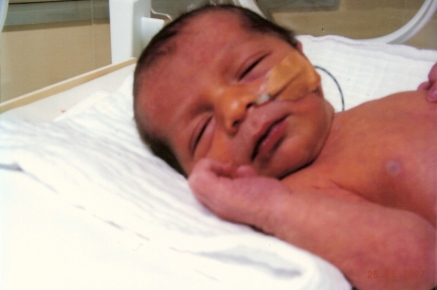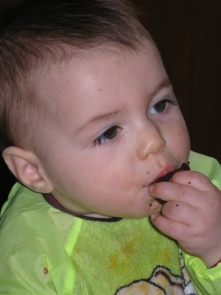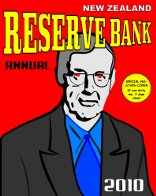Here's a list of five things that I loathe: religious ceremonies, wearing a suit, listening to stupid speeches, too many people, and dancing. Put these all together -- and you've got the average wedding.
I remember the exact moment when I realized the true awfulness of weddings. I was a teenager, and a family friend was getting married in church. A flautist had been hired to play 'Strangers in the Night' as the vows were exchanged.
My first thought was: "Surely this is an ill-advised choice of music?" Then came a second thought, bursting through my consciousness as per the enlightenment of Saint Paul on the road to Damascus: "Even if the music weren't 'Strangers in the Night'*, this whole wedding thing would still suck".
At the time, I assumed that -- deep down -- everyone must feel this way. Weddings, I guessed, must be one of those things you just have to endure in life: like having a tooth extracted, or seeing Paul Henry on television.
It wasn't until my late teens that I began to realize that some people genuinely enjoy them. This was thrown into sharp relief when I visited a friend's house one day, and spoke to his 28-year-old sister. She'd seemed perfectly normal on the previous occasions that I'd met her; but now she talked as if her brain had become decoupled from her mouth.
"I must tell you about this beautiful wedding dress I've seen," she gabbled. "It's scarlet! Can you believe it? I'd love to wear it, but I know Mum would have kittens."
I deduced that my friend's sister was about to be married.
She continued: "Mum and I have been looking at venues. We're leaning towards having a marquee at the Corban's estate in Henderson. Mum says that small weddings are better -- so we're keeping the guest list under 200 -- but we've got the seating arrangements all figured out. I'm thinking about asking Kevin if he'd let me use his Charger as the wedding car. And when I walk down the aisle, I'm going to have a choir singing: 'Up Where We Belong' or 'Islands in the Stream', I haven't decided which one yet."
It sounded like a nightmare to me -- but to be polite, I asked when the wedding was timetabled to occur.
It was here that her brother interjected. "Ha!" he said. "Never, if you ask me." He went on to explain with typical brotherly candour: "She and mum are planning her wedding, and she doesn't even have a boyfriend."
Frankly, the whole situation was a real eye-opener. Here was someone who not only didn't find weddings utterly appalling -- but, on the contrary, loved them so much that she was spending all her time making plans. And this despite the fact that she had a large groom-sized blank space to fill.
Happily, I can report that she managed to tie the knot about 18 months later -- although, according to her brother, the groom still remained something of a blank space.
Over the years most of my friends have got hitched. I was happy to see them married, but the weddings were excruciating. Each celebrant seemed more insincere than the last; each father-in-law more rambling and incoherent; and each posse of line-dancing bridesmaids another dagger in my heart.
I began to feel sad and twisted. What was wrong with me? Why didn’t I enjoy weddings? I wondered if I was the only person in the world who felt this way.
But then I met Jennifer. During our first conversation, she described a bride of her acquaintance as resembling "a giant sobbing brain-dead meringue". And that was when I knew that Jennifer was the woman I would marry.
The drawback, however, is that a mutual detestation of weddings does not make the nuptial process very easy. In New Zealand, the law requires that an authorized officiant must perform the ceremony. Both Jennifer and I agreed that a marriage celebrant was an appalling idea (speaking for myself, I don't even like the word 'celebrant'). And even a Registry Office wedding requires vows and a ceremony.
The answer was Chicago. Jennifer had lived there for nearly five years, and one of her friends was Reverend Scott, a mail-order vicar who'd paid fourteen cents for his religious qualifications. Under American law, all we needed was his signature on a State of Illinois marriage licence.
We flew to Chicago.
At the Cook County Clerk's Office, the marriage licence queue was supervised by a policeman with a gun. Behind us, a young Hispanic woman was weeping from either joy or misery. Her husband-to-be whispered: "It's okay, baby, stop crying. It's gonna be okay."
In front of us, a women yelled into her cell-phone: "Look I don't care what you have to do to get her to the wedding. Now are you gonna act like a man? Or do I have to come over there and bitch-slap some sense into that 'ho' myself".
The queue moved at glacial speed. Just before the clerk's desk, a line was painted onto the floor. "Keep behind the line, please, sir," the cop told me. A few minutes later I inadvertently stepped over the line again.
"Sir, can you please keep behind the marked line." American policemen have developed a technique of saying 'sir', but conveying the word 'dickhead'.
I apologized, and then accidentally stepped across the line a third time. The cop came over, and put his face next to mine: "Sir, if I have to tell you one more time not to step over the line, I'm going to have to ask you to leave."
When we reached the counter, the clerk was brusque and efficient: "Okay, I need to see a driver licence from both of you."
She squinted at our licences, transferred our names onto a form, and then handed it to Jennifer. "Congratulations. You gotta three day cooling-off period, and then you can hold your wedding. Next please."
Three days was perfect.
It transpired that Reverend Scott's niece was cooking dinner the night our cooling-off period expired. She was a trainee chef -- which seemed highly promising for a surprise wedding. On the downside, however, it turned out that it was only her first day at chef school. Dinner consisted of lettuce and imitation bacon made from soy-beans. I found it strangely delicious.
After dinner, we presented Reverend Scott with our marriage licence. He was clearly very surprised, but quickly regained his composure. "Well," he said. "I guess this calls for a round of my special extra-dry vodka Martinis."
He made the drinks, and then signed the licence. We were married.
It grew dark. We sat on the balcony and watched fireflies. The Martinis tasted like petrol. Reverend Scott talked about his religious convictions.
"I'd have to describe myself as agnostic rather than atheist," he mused, "because of the Burt Reynolds analogy." He paused to let this statement sink in.
"Now take our bedroom closet. What if you told me that Burt Reynolds was in that closet right now? Well, that'd be very unlikely -- the probability would be approaching zero. But I couldn't actually prove that it's completely impossible."
He took another sip of his Martini. "If you see what I'm getting at," he added.
It was -- and I'm entirely serious when I say this -- the loveliest wedding I could imagine.


